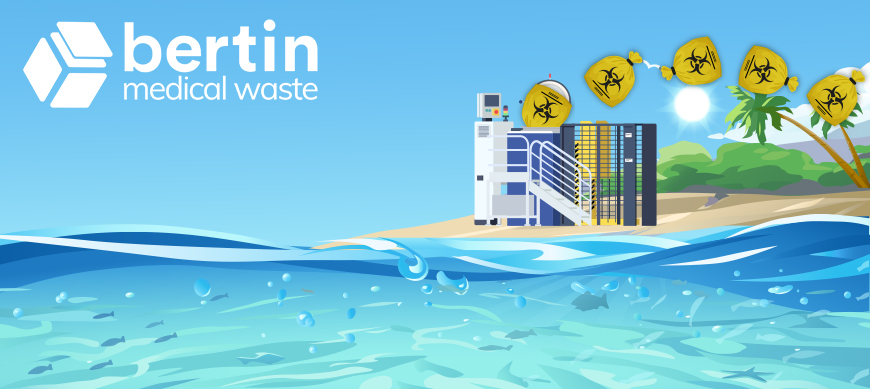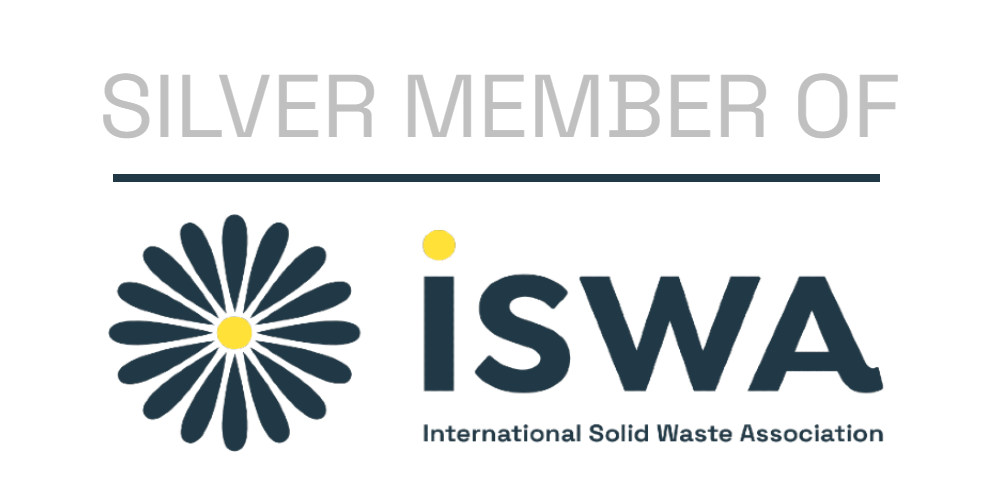Treating medical waste in island regions presents a unique set of challenges that can strain healthcare infrastructure and harm the environment. One of the primary difficulties lies in the need to transport the waste either to the mainland or to another location within the island, making it logistically challenging and expensive to ensure proper disposal. This added cost burden can be particularly taxing for hospitals. Unfortunately, due to these logistical hurdles and high costs, the easiest, albeit environmentally harmful, solution is often for medical waste to end up in the ocean. This practice not only pollutes fragile marine ecosystems but also threatens the health and safety of island communities, highlighting the pressing need for innovative on-site treatment solutions to prevent contamination risks and ensure that waste does not find its way into the ocean.
In the wake of the COVID-19 pandemic, the use of masks and PPEs (Personal Protective Equipment) has surged globally, becoming an indispensable tool in our fight against the virus. However, the unintended consequence of this essential safety measure has been the alarming increase in mask pollution, with these vital items ending up in our oceans and harming marine ecosystems. Here are some numbers to put this issue into perspective:
- According to a report by OceansAsia, an estimated 1.56 billion face masks entered the ocean in 2020 alone.
- These masks can take up to 450 years to decompose, and in the meantime, they pose a threat to marine life that can mistake them for food or become entangled in them.
The irresponsible discarding of used masks into the environment, and mismanagement of the waste they produce, is potentially placing a large pollution burden on the aquatic environment.
If not disposed of for recycling, like other plastic wastes, disposable masks can end up in the environment, freshwater systems, and oceans, where weathering can generate many micro-sized particles (smaller than 5 mm) during a relatively short period (weeks) and further fragment into nanoplastics (smaller than 1 micrometer).
Sterilwave Technology in the Islands
Sterilwave is a cutting-edge innovation primarily designed for the safe disposal of medical waste in healthcare settings. It employs microwave technology to sterilize and decontaminate waste, including used masks. How does it help in the battle against ocean pollution?
1. Safe Disposal:
Sterilwave ensures that used PPEs are properly and safely disposed of within healthcare facilities. By doing so, it reduces the likelihood of infectious waste being improperly discarded in the environment.
2. Volume Reduction:
One key advantage of Sterilwave is its ability to reduce the volume of medical waste, including masks. This means fewer waste bags making their way to disposal sites and a reduced risk of accidental littering.
3. Promotes Responsibility:
Institutions implementing Sterilwave are more likely to follow responsible waste management practices. This includes proper sorting, containment, treatment and disposal of medical waste, which, in turn, minimizes the risk of medical waste ending up in our oceans.
In conclusion, Sterilwave technology isn’t just about safer medical waste disposal, it’s a step towards preserving the beauty and health of our oceans. Let’s continue to explore and support innovations that align with our aspirations for a happier, wealthier, and healthier world, where we can travel and enjoy the wonders of nature without harming it.
Let’s take a few examples of Sterilwave in the Islands:
1. Philippines
Sterilwave, a groundbreaking innovation in medical waste management, has made a significant impact on the landscape of this critical sector in the Philippines. Recognized and highly praised by the Asian Development Bank (ADB), Sterilwave has introduced a game-changing solution that addresses the challenges associated with the disposal of medical waste in islands such as the Philippines.
2. Saint Martin Island
Sterilwave stands as a trailblazing solution on the island of Saint Martin, where it made history as the first onsite medical waste management system. Its introduction marked a significant turning point for the island, as it provided a solution to the distinct challenges posed by medical waste disposal in this unique setting.
For nearly a decade, Sterilwave has been a reliable workhorse, efficiently treating infectious waste while maintaining remarkably low operating costs. This extended period of successful operation has not only established Sterilwave as a trusted technology but has also equipped the island with the knowledge and expertise to effectively manage its medical waste.
3. New-Caledonia – Iles Loyautés
Les Iles Loyautés of New Caledonia (Maré, Lifou, and Ouvéa) have taken a significant stride in addressing a pressing issue faced by islands worldwide – the responsible management of infectious healthcare waste from dialysis units.
By choosing Sterilwave solution, Les îles Loyautés are wholeheartedly embracing sustainability and environmental protection. This innovative, 100% electric technology effectively manages biomedical waste without the need for water consumption and eliminates the discharge of liquid effluents. This not only addresses their unique challenges in waste management but also contributes to preserving the fragile ecosystems of island environments, making it a noteworthy and relevant step for island communities.
Please feel free to share your thoughts and insights on this critical issue and the role of technology in addressing it.


